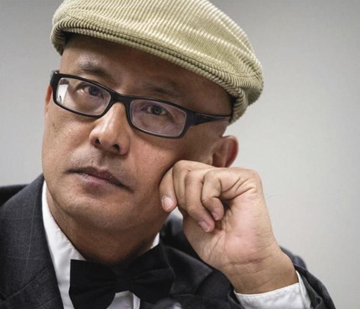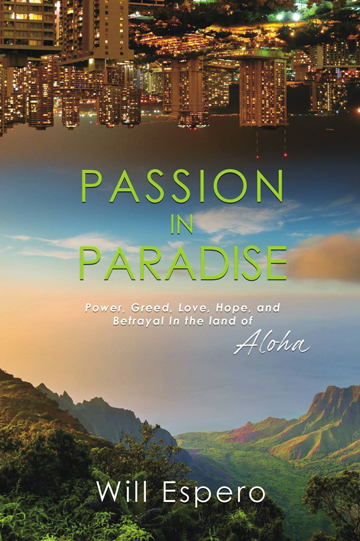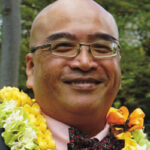
Passion in Paradise Reviewed
Gilbert S.C. Keith-Agaran
Former West O‘ahu State Senator Will Espero has written his first novel (he earlier released a collection of his haikus). Set firmly in today’s Honolulu, Espero writes about what he knows well—Hawai‘i politics, politicians and controversial public policy issues—woven into a contested election campaign and the aftermath of that race as another election approaches. First-term Democratic Governor Thomas Henderson and his Republican rival, hotel resort head Jarod Wong clash even as their various family members find themselves entwined politically and personally. In a way, Espero understands Honolulu (and Hawai‘i generally), remains a small town where your connections are often closer than your differences—and especially among the island’s business and political elite. And like many good stories, people in Passion in Paradise hold secrets that hidden too long impact choices affecting not just individuals but entire families and communities.
Espero’s public service spanned most of O‘ahu government—administrator in the City and County of Honolulu’s neighborhood board commission and elected to both the Hawai‘i House of Representatives and the State Senate. He represented mainly working-class communities in West O‘ahu over the course of two decades. Espero closed his elected career with unsuccessful runs—in crowded fields—for the U.S. Congress in 2014, Lt. Governor in 2018 and Honolulu City Council in 2020. In the Legislature, Espero made a mark as a prominent critic of the police and an advocate for reforming criminal drug laws and decriminalizing prostitution by recognizing and reforming human trafficking laws.

Photo: Alchetron, The Free Social Encyclopedia
So it’s not surprising most of the action in his first novel takes place on O‘ahu. What is surprising is his two main characters—Democrat Henderson and Republican Wong—while scions of longtime Hawai‘i families, descend without any of the inter-marriage that marks much of modern Hawai‘i. Other local ethnic communities are represented by minor characters—including the first Filipina Mayor of Honolulu. In that sense, this is not the long-awaited sequel to James Michener’s Hawaii. Instead of the “Golden Men” who built the islands (with the occasional strong woman), Espero’s Hawai‘i residents are mainly flawed (with perhaps the exception of Henderson who maintains his pragmatic idealism throughout) and who are led, as the title suggests, by their passions. In that sense, it’s akin to modern stories about Hawai‘i.
Wong is the most flawed and is the most interesting character, dominating much of the story as much as he apparently dominates the visitor industry as head of a sprawling hotel conglomerate. Given his politics, Espero seems happy to describe Wong as both a ruthless and shrewd businessperson (pushing out, for example, relatives from company leadership) and a somewhat naīve and craven political candidate. Yet it’s Wong who propels the novel spiraling into a dizzying maze of political maneuvering, business shenanigans and personal relationships and sexual affairs.
Perhaps as the first novel in a projected series, Espero spends a good portion of the book introducing the Hendersons and Wongs, explaining their history in Hawai‘i and placing the lives of various friends, cronies and colleagues in that backstory. The names of various characters perhaps reflect the diversity of Hawai‘i’s population but leave much to flesh out in dialogue and actions. Henderson and Wong, for example, stay in their ideological lanes for the most part throughout the gubernatorial campaign that opens the story and the debates over building more homeless and local housing, legalizing recreational cannabis, decriminalizing prostitution and increasing investments by the visitor industry in social programs that spin through the rest of the story. The art of making sausage gets some short shrift as legislative leaders counsel Governor Henderson on his bills package.

Image courtesy Will Espero
Espero joins a number of former Hawai‘i public officials who have published books. Governor George Ariyoshi wrote a short policy memoir (With Obligation to All 1997) which in tone and structure reflected his public and apparently his private, persona, followed decades later by a more policy driven tome reflecting on the islands since he left office and what directions the state could pursue going forward (Hawai‘i’s Future 2020). Hawai‘i’s only Filipino American Governor Ben Cayetano wrote a frank, vivid and often entertaining autobiography (Ben: A Memoir, From Street Kid to Governor 2009) which captured coming of age during the Territorial post-war years, the disconnects between meritocracy and island culture and Hawai‘i politics only a decade or so after Hawai‘i attained statehood. Both the late Daniel Inouye and Daniel Akaka—Hawai‘i’s longtime U.S. Senators—also offered short but powerful biographical tomes: Journey to Washington (with Lawrence Elliott 1968) at the beginning of a seminal legislative career and One Voice: My Life, Times and Hopes for Hawai‘i (with Jim Borg) 2017) after the end of an era. More recently, former U.S. Congresswoman Pat Saiki (who would lose the 1994 Gubernatorial election to Cayetano) released her memoir, A Woman In The House (2021), while current Hawai‘i U.S. Senator (and Cayetano’s Lt. Gov.) Mazie Hirono has written the well-regarded Heart of Fire: An Immigrant Daughter’s Story (2021). And of course, Hawai‘i-born Barack Obama released the first volume of his autobiography, A Promised Land (2020), which follows his powerful and readable Dreams from My Father: A Story of Race and Inheritance (2004) and presidential launch statement The Audacity of Hope: Thoughts on Reclaiming the American Dream (2007).
Hawai‘i elected officials have more rarely gone the fictional route: then U.S. Congressman (and future Governor) Neil Abercrombie’s 1997 Blood of Patriots (perhaps adding mainly his name and Congressional insights to this side entry of Richard Hoyt’s John Burling thriller series). Fiction allows a writer to argue points of view through characters without ascribing to a particular point of view. In one such passage, Espero notes matter-of-factly the legislative wrangling over the sex trade is a historical and even hypocritical given present-day Hawai‘i: … young women entertained at dozens of strip clubs scattered around O‘ahu. Stripping and dancing naked is legal in Hawai‘i and most of the industrial world, and women from around the globe could be found in the darkened nightclubs filled with single men, college students, successful businesspersons, tourists, military personnel, and others who want to enjoy the sight of gyrating hips, sexy legs, and curvaceous bodies. While this scene was legal, the irony of exchanging cash for physical pleasure between consenting adults remained …
Like the rest of the United States and other countries, the sex trade was once legal in the Kingdom of Hawai‘i long ago. The arrival of European explorers, whalers and businessmen opened the door to prostitution. Prior to the Europeans’ arrival to the islands, there was no prostitution in the Hawaiian Islands although polygamy was practiced by early Hawaiians.
Up until World War II, the sex industry was thriving in the United States Territory of Hawai‘i. By the end of the 1800s, the community of Iwilei was identified by the powers to be as the red-light district of Honolulu. In 1860, an act to register sex workers and regulate the industry passed the Territorial Legislature. Eventually the Iwilei district was closed due to protests and advocacy by missionaries and others. The brothels soon moved into the Chinatown area nearby. An era of liberal deregulation, unofficial acceptance, and minimal government oversight had taken root.
The advent of World War II brought high demand for the sex industry by soldiers and sailors entering the Pacific war arena. Due to pressure from moralists and conservatives, the remaining brothels of O‘ahu and the red- light district of Honolulu were eventually shut down in 1944.
At the heart of it, Passions in Paradise is a classic tragedy. The mystery is which of the heroes falls further from all his or her flaws and which rises above those problems. Henderson is perhaps too much of a Boy Scout while Wong might, in the end, be too much of a rogue.
 Gilbert S.C. Keith-Agaran is one of six Filipinos in the twenty-five member State Senate. He served six legislative sessions with Will Espero, chairing the Senate Judiciary committee while Espero headed the Public Safety committee, the two committees sharing responsibility for trafficking and drug laws.
Gilbert S.C. Keith-Agaran is one of six Filipinos in the twenty-five member State Senate. He served six legislative sessions with Will Espero, chairing the Senate Judiciary committee while Espero headed the Public Safety committee, the two committees sharing responsibility for trafficking and drug laws.
